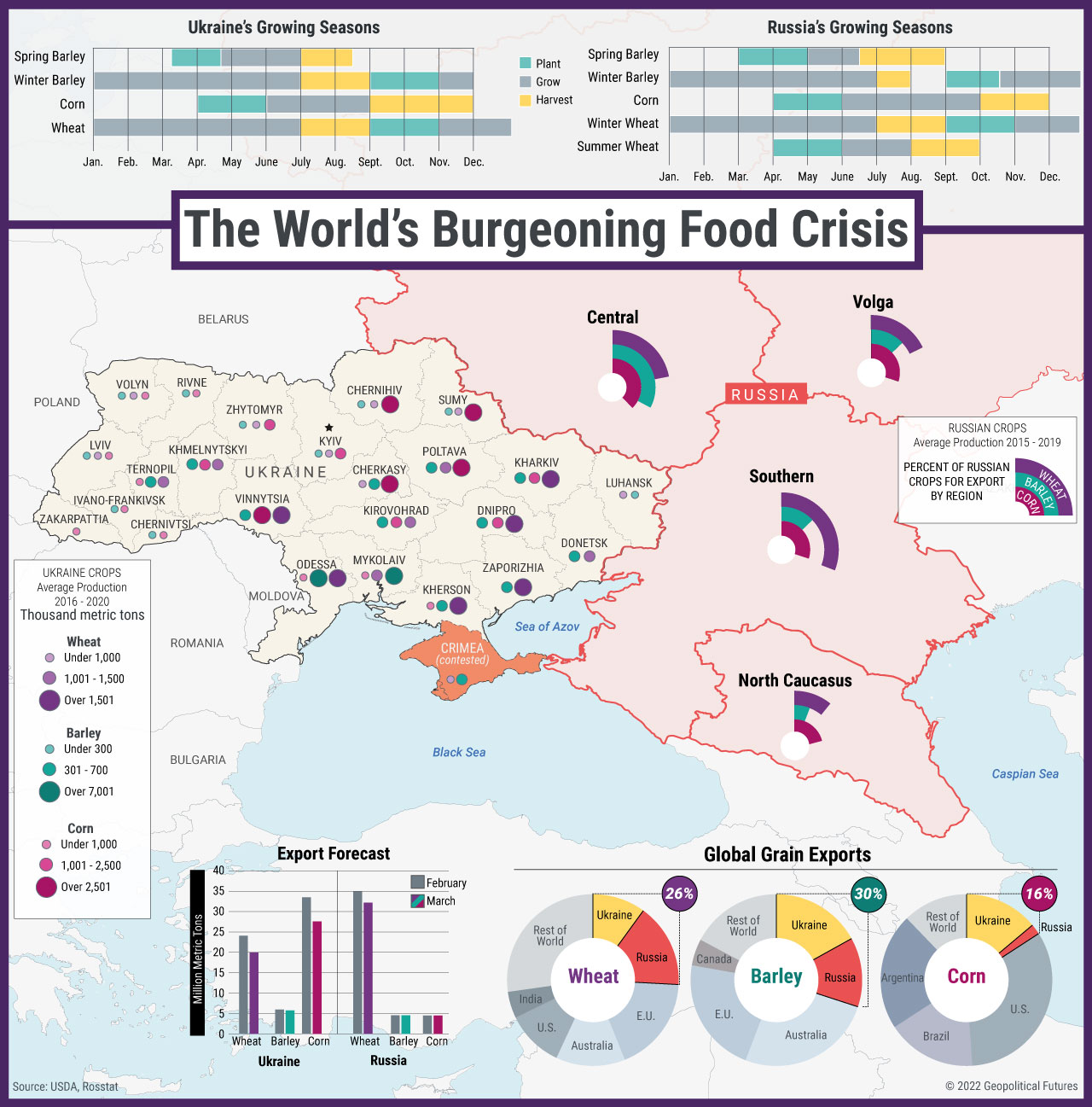Record food prices and disrupted grain supply due to the war in Ukraine bode poorly for global food security. Ukraine and Russia are both top grain exporters, but the closing of Ukrainian ports and sanctioning of Russian trade are causing severe market disruption. Fighting and cold weather has also interrupted Ukraine’s March to early April sowing campaigns, which could impact future exports as well.
Governments are now scrambling to secure new suppliers, but market volatility means not everyone is willing to sell. The impact has been felt severely among less wealthy countries with high dependence on Russian and Ukrainian grain imports, namely the Middle East and North Africa. Shortages and high prices make securing sufficient supplies difficult, and those countries that cannot find alternatives or funds are at high risk of social unrest.
The scenario has also led to unusual new behaviors in grain markets. Indian wheat, for example, now finds itself competitive enough for exports. Record-high wheat and corn prices are pushing Chinese importers to turn to rice as an animal feed substitute. This is fueling domestic price rises in India and Thailand, and increased pressure on global rice inventories. A spike in rice demand, and subsequently higher prices, would spell trouble for pricing access to two of the world’s largest food staples, wheat and rice.






 Special Collection – The Middle East
Special Collection – The Middle East